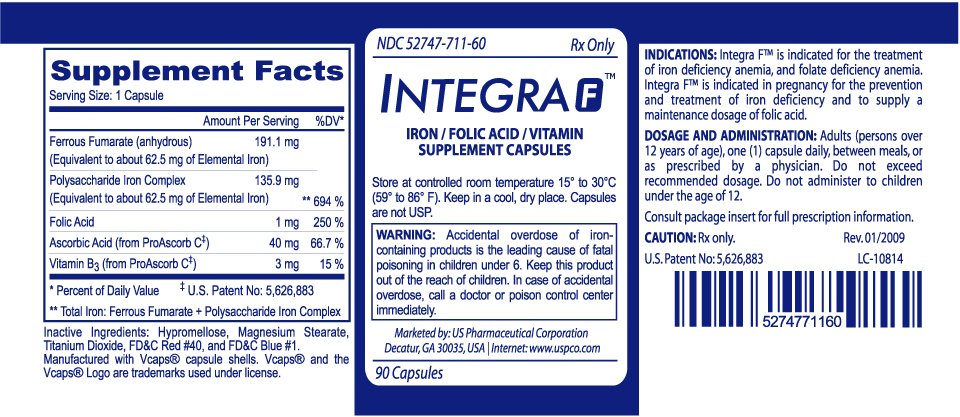Understanding The Potential Side Effects Of Integra: A Comprehensive Guide
Understanding the Potential Side Effects of Integra: A Comprehensive Guide
Understanding the Potential Side Effects of Integra: A Comprehensive Guide
Introduction
With enthusiasm, let’s navigate through the intriguing topic related to Understanding the Potential Side Effects of Integra: A Comprehensive Guide. Let’s weave interesting information and offer fresh perspectives to the readers.
Table of Content
Understanding the Potential Side Effects of Integra: A Comprehensive Guide

Integra, a medication often prescribed for the treatment of attention-deficit/hyperactivity disorder (ADHD), can be a valuable tool for managing symptoms and improving quality of life. However, like all medications, Integra can also cause side effects. This guide aims to provide a comprehensive overview of potential side effects, their severity, and strategies for managing them.
Common Side Effects:
Integra, like other stimulants, primarily affects the central nervous system, leading to a range of potential side effects. Some of the most commonly reported side effects include:
- Decreased Appetite: This is a frequent side effect, particularly in children and adolescents. It can lead to weight loss or difficulty maintaining a healthy weight.
- Insomnia: Integra can interfere with sleep patterns, making it difficult to fall asleep or stay asleep. This side effect is often more pronounced when the medication is taken later in the day.
- Headache: Headaches are a common side effect, often described as mild to moderate in intensity. They can occur at any time but are more frequent during the initial stages of treatment.
- Stomach Upset: Nausea, vomiting, and abdominal pain are possible side effects, although they are generally mild and temporary.
- Anxiety and Restlessness: While Integra is primarily intended to reduce hyperactivity, some individuals may experience increased anxiety or restlessness.
- Tics: In some cases, Integra may trigger or worsen pre-existing tics. This is more likely to occur in individuals with a family history of tics or Tourette syndrome.
Less Common but Serious Side Effects:
While less frequent, some side effects can be more serious and require prompt medical attention. These include:
- Cardiovascular Issues: Integra can elevate heart rate and blood pressure, which can be concerning for individuals with pre-existing cardiovascular conditions. It is crucial to inform your healthcare provider about any heart conditions before starting Integra.
- Psychiatric Problems: In rare instances, Integra may worsen existing psychiatric problems or trigger new ones, such as psychosis, mania, or depression. It is essential to monitor for any changes in mood, behavior, or thought patterns.
- Seizures: While uncommon, Integra can increase the risk of seizures in individuals with a history of epilepsy or other seizure disorders.
- Sudden Death: Although extremely rare, there have been reports of sudden death associated with Integra. It is important to note that these cases often involve individuals with pre-existing heart conditions or who have misused the medication.
Managing Side Effects:
Managing side effects is crucial for maximizing the benefits of Integra while minimizing discomfort. Here are some strategies:
- Communication with Healthcare Provider: Openly discuss any side effects you experience with your healthcare provider. They can adjust the dosage, change the timing of medication administration, or recommend alternative treatment options.
- Proper Dosage and Timing: Following your healthcare provider’s instructions regarding dosage and timing is essential. This helps minimize the risk of side effects and optimize treatment efficacy.
- Lifestyle Modifications: Lifestyle changes can help manage some side effects. For example, avoiding caffeine and alcohol, maintaining a regular sleep schedule, and engaging in regular physical activity can contribute to better sleep and reduce anxiety.
- Dietary Adjustments: Ensuring adequate hydration and a balanced diet can help mitigate some side effects, such as decreased appetite and stomach upset.
- Monitoring for Serious Side Effects: Be vigilant for any sudden or concerning changes in your health, such as chest pain, rapid heartbeat, confusion, or seizures. Seek immediate medical attention if you experience any of these symptoms.
Frequently Asked Questions (FAQs)
Q: How long does it take for the side effects of Integra to go away?
A: The duration of side effects can vary depending on the individual and the specific side effect. Some side effects, such as decreased appetite or insomnia, may resolve within a few days or weeks as your body adjusts to the medication. Others, such as headaches, may persist for a longer period. If side effects are severe or persistent, consult your healthcare provider.
Q: Can I stop taking Integra if I experience side effects?
A: It is crucial to consult your healthcare provider before stopping Integra, even if you are experiencing side effects. Stopping abruptly can lead to withdrawal symptoms, such as fatigue, headaches, and irritability. Your healthcare provider can determine the best course of action, which may involve adjusting the dosage or switching to a different medication.
Q: Are there any alternatives to Integra?
A: Yes, there are several other medications available for the treatment of ADHD. Your healthcare provider can discuss alternative options based on your individual needs and medical history.
Q: Is Integra safe for children?
A: Integra is approved for use in children with ADHD, but it is important to discuss the potential risks and benefits with your healthcare provider. They can assess your child’s individual needs and determine the appropriate dosage and monitoring plan.
Tips for Managing Side Effects:
- Keep a log of side effects, including the time of occurrence, severity, and any associated factors. This information can be helpful in communicating with your healthcare provider.
- Communicate openly with your healthcare provider about any concerns or changes in your health.
- Avoid self-treating side effects with over-the-counter medications without consulting your healthcare provider.
- Seek support from family, friends, or support groups if you are experiencing significant side effects.
- Stay informed about Integra and its potential side effects by consulting reliable sources of information, such as your healthcare provider or reputable medical websites.
Conclusion
Integra can be an effective treatment option for ADHD, but it is essential to be aware of its potential side effects. Open communication with your healthcare provider, careful monitoring, and appropriate management strategies are crucial for maximizing the benefits of Integra while minimizing discomfort. By following the guidance outlined in this guide, individuals can work with their healthcare providers to manage side effects and achieve the best possible outcomes from treatment.








Closure
Thus, we hope this article has provided valuable insights into Understanding the Potential Side Effects of Integra: A Comprehensive Guide. We thank you for taking the time to read this article. See you in our next article!